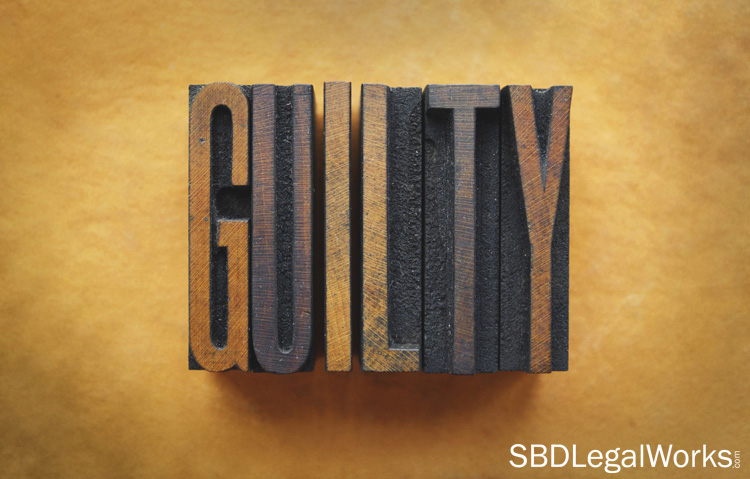
While the pleas of no contest and guilty are similar in a criminal case, they’re different enough that it’s important to understand the difference. If you’re the defendant in a criminal case, it’s essential that you consult an experienced criminal defense attorney who can provide you with astute legal advice so you understand the consequences of your decision before you take any action.
No contest equals guilty
Essentially, when a defendant pleads no contest to the charges against them, they’re admitting their guilt without actually using the words “I’m guilty.” Under the U.S. Constitution, criminal defendants have the right to be tried by a jury of their peers and are considered innocent until such time as a jury proves them guilty.
A not-guilty plea means that the case must move onto the trial phase before a conviction can be decided. A guilty or no-contest plea means that the defendant has decided not to go ahead with a trial and can simply move onto a plea bargain.
If pleading no contest and guilty are the same thing, then why is it an option to plead no contest? Why wouldn’t a defendant just plead guilty?
How pleading no contest can affect a future civil case
If you plead guilty in a criminal case, that plea will carry over if you’re ever sued for the same crime in a future civil case. A plea of no contest in a criminal case, however, cannot be used against you in a future civil trial. The 1 exception to this rule is in felony cases—where either a guilty or no-contest plea can be used against you if a civil lawsuit is filed against you in the future.
Take a DUI, for instance. If a defendant pleads guilty to the DUI charges against them in a criminal case, that guilty plea will carry over if someone involved in the DUI, like a crash victim, sues them in civil court for damages.
A plea of no contest, on the other hand, means the defendant doesn’t admit guilt in the injury case. Therefore, the plaintiff would need to prove their guilt by a preponderance of the evidence in any future civil trial.
Another thing to consider when pleading no contest is how this plea can affect a parole hearing. Since pleading no contest is basically an admission of guilt, it could hurt your chances of having your sentence reduced later.
On the other hand, if you stand by their innocence, parole may also be denied. This is because successful parole applications typically include a statement of remorse, which wouldn’t be applicable if you were maintaining your innocence.
No contest comes with a plea bargain
If your intention is to plead guilty or no contest to strike a plea bargain and avoid trial, it’s important to understand that judges aren’t obligated to accept no contest pleas, and some prosecutors may actually insist that you plead guilty in order to enter into a plea bargain.
That said, prosecutors will often agree to reduced charges and penalties in exchange for your change in plea to guilty. Either way, it doesn’t automatically guarantee you’ll escape a jail sentence.
In the end, which plea is better for you depends on the specifics of your case. A criminal defense attorney can help you understand your options so you can make an informed decision.